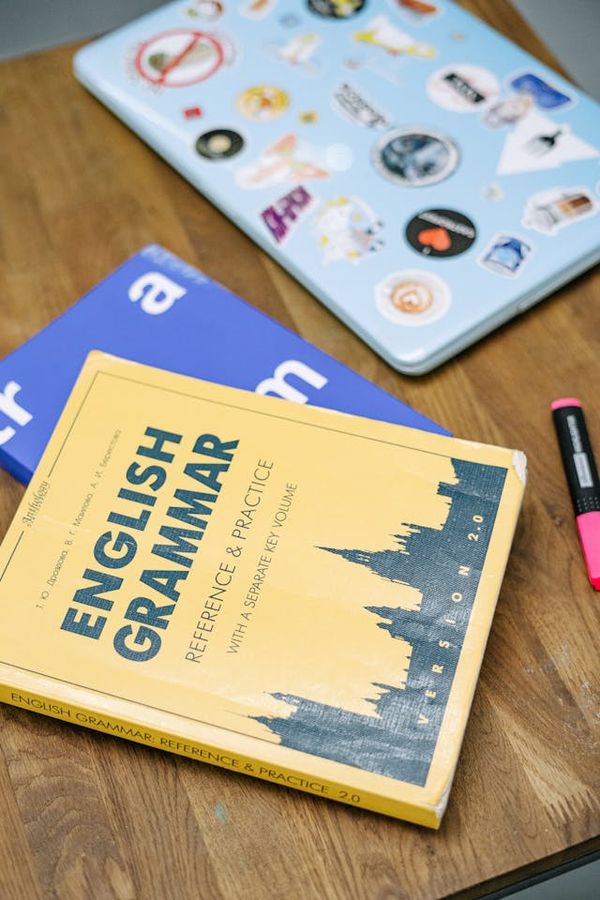0

Mastering Verb Tenses: A Student's Guide to Advancing in ESL
2 years ago
Learning English as a second language can be both exciting and challenging. One area where many ESL students struggle is understanding verb tenses. Verb tenses are crucial because they help us talk about when things happen—whether in the past, present, or future. If you're a middle-level beginner aiming to become an advanced-level beginner, improving your grasp of verb tenses is essential. Here are some effective methods that have helped me and might help you too.
1. Start with the Basics
Before diving into more complex tenses, make sure you have a solid understanding of the basic ones: present simple, past simple, and future simple.
- Present Simple: Used for habits, general truths, and states. Example: "I study English every day."
- Past Simple: Used for actions that happened and were completed in the past. Example: "I studied English yesterday."
- Future Simple**: Used for actions that will happen in the future. Example: "I will study English tomorrow."
Starting with these basics provides a strong foundation for learning more advanced tenses.
2. Use Visual Aids
Visual aids can make learning verb tenses easier. Timelines, charts, and diagrams help you see how tenses relate to time. Drawing a timeline and marking events on it can show how different tenses work.
Example: Draw a line with three sections: past, present, and future. Mark where "I studied" (past), "I study" (present), and "I will study" (future) fit on the line.
3. Practice Regularly
Consistent practice is key to mastering verb tenses. Set aside time each day to practice. You can do this by writing short paragraphs about your day, describing what you did (past), what you're doing (present), and what you plan to do (future).
Tip: Keep a journal. Write a few sentences every day, focusing on using different tenses. This helps reinforce what you learn and makes you more comfortable with the language.
4. Read Widely
Reading is a great way to see how verb tenses are used in context. Read books, articles, and stories in English. Pay attention to how the tenses change depending on the situation.
Tip: Choose a variety of materials. Fiction, non-fiction, newspapers, and blogs all offer different writing styles and uses of tenses.
5. Highlight Signal Words
Certain words and phrases often signal specific tenses. Learning these can help you choose the correct tense when writing or speaking.
- Present Simple: Always, usually, every day
- Past Simple: Yesterday, last week, in 2020.
- Future Simple: Tomorrow, next year, in the future.
Tip: Make flashcards with these signal words and practice matching them with the correct tense.
6. Use Technology and Online Resources
There are many online resources and apps designed to help ESL students improve their understanding of verb tenses. Websites like Duolingo and Quizlet offer exercises and quizzes that make learning fun and interactive.
Tip: Spend a few minutes each day using these tools. Consistency is important, and these resources can provide additional practice and reinforcement.
7. Engage in Conversations
Practising tenses through conversation helps reinforce what you've learned. Find a language partner or join an ESL group to practice speaking. Discuss past experiences, current activities, and future plans to use different tenses naturally.
Tip: Don’t worry about making mistakes. Speaking regularly helps you become more fluent and confident.
8. Write Stories
Writing stories is an excellent way to practice verb tenses. You can write about your day, your past, or your future plans. This helps you see how different tenses work together.
Example: Write a short story starting with what you did yesterday, what you're doing today, and what you'll do tomorrow. This exercise helps you practice past, present, and future tenses in a single piece of writing.
9. Seek Feedback
Getting feedback on your writing and speaking can help you understand where you need to improve. Ask your teacher, language partner, or a native English speaker to review your work and provide constructive criticism.
Tip: Use feedback to identify common mistakes and focus on correcting them. This helps you learn and improve more effectively.
10. Create a Tense Reference Guide
Having a reference guide can be incredibly helpful. Create a booklet or chart that outlines the different tenses, their uses, signal words, and examples. This guide can be a quick go-to resource when you're unsure about which tense to use.
Tip: Personalize your guide with notes and additional examples you come across during your studies. This makes it more useful and relevant to your learning journey.
Conclusion
Improving your understanding of verb tenses is a crucial step in advancing your ESL skills. By starting with the basics, using visual aids, practising regularly, reading widely, highlighting signal words, using technology, engaging in conversations, writing stories, seeking feedback, and creating a tense reference guide, you can make significant progress. Remember, learning a new language takes time and patience, but with consistent effort, you will improve. Happy learning!
To your English language success
Michael
Photo by Ivan Samkov
